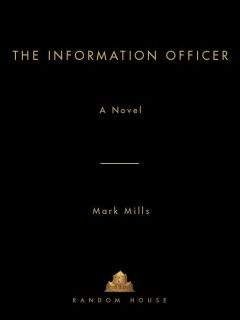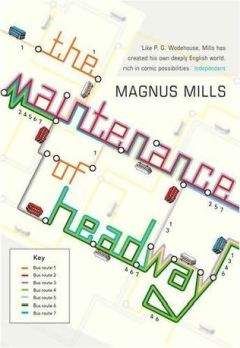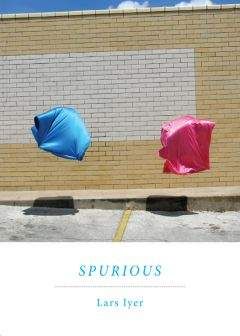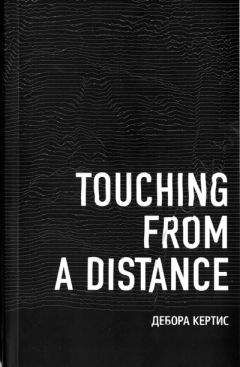Mark Mills - Amagansett
На электронном книжном портале my-library.info можно читать бесплатно книги онлайн без регистрации, в том числе Mark Mills - Amagansett. Жанр: Прочее издательство неизвестно, год 2004. В онлайн доступе вы получите полную версию книги с кратким содержанием для ознакомления, сможете читать аннотацию к книге (предисловие), увидеть рецензии тех, кто произведение уже прочитал и их экспертное мнение о прочитанном.
Кроме того, в библиотеке онлайн my-library.info вы найдете много новинок, которые заслуживают вашего внимания.
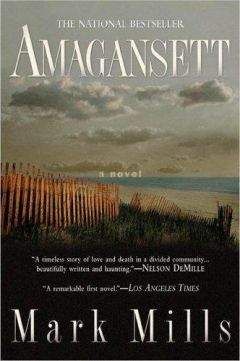
Mark Mills - Amagansett краткое содержание
Amagansett читать онлайн бесплатно
Many in East Hampton and Amagansett looked down on the tatty little community of transients, apparently forgetting that their own villages had started life in exactly the same way. It was natural that Conrad and his family take Montauk to their hearts. After all, their story was no different—first-generation immigrants lured to the eastern end of Long Island by a twist of fate. In their case, they owed it all to the intervention of a loose paving stone. If one of the men who made the weekly booze run out to Montauk hadn’t turned his ankle, then Conrad’s father wouldn’t have had to stand in for him, and he would never have set eyes on Amagansett.
Two years into Prohibition, his father and Eusebio had secured a lucrative little slice of the trade in illegal liquor, running the stuff into the city from the tip of Long Island, where the foreign schooners moored just beyond the twelve-mile limit, the booze hustled ashore by a fleet of local boats. On the night in question, Conrad’s father had found himself on the ocean beach at Amagansett, hefting cases of Golden Wedding whiskey into the back of a truck.
The way he told it, he experienced an epiphany of near-religious intensity. As he took in the unbroken strip of moonlit sand backed by dunes, he found himself transported back to his Euzkadi, to the beaches north of Biarritz which he’d fished since childhood. The same ocean, the same waves breaking against an identical stretch of coastline. And he made a vow to himself: if he couldn’t go back to the old country, he would at least return to the old ways. As soon as he had saved up enough money, he would move with his boys to Amagansett and take up fishing once more.
That moment arrived, quite unexpectedly, a few weeks later. While pushing their way along a crowded downtown sidewalk one night, Eusebio yelped then spun around, searching the faces in the throng. He grabbed their father’s arm and urged him to hurry along. Within a block, Eusebio was leaning on him for support, steering him into an alleyway. That’s when their father saw the bib of blood soaking the back of Eusebio’s pants.
It was a warning, a single thrust of a stiletto blade into the back of the thigh; but the assailant had messed up, striking an artery. Eusebio felt the life slowly draining out of him and he began to talk. He admitted that he hadn’t been entirely honest in his dealings with their father, excluding him from certain profits, certain transactions, one of which had just backfired on him. He told their father to disappear, and quickly; it was just a matter of time before the people in question came knocking on his door. He barely managed to reveal the whereabouts of his ill-gotten gains before drifting into unconsciousness. Death followed moments later. Their father left Eusebio where he had fallen, curled on the cobbles. He would have taken his friend’s black Borsalino hat with him, but Eusebio had always joked that he never took it off for fear his Maker wouldn’t recognize him when his time came.
Conrad had a dim recollection of being hauled from his bed in the dead of night, of their father thrusting a thick roll of bills into the hands of a tearful Irena, of being bundled into a car. They woke the next morning to find themselves in a field on the outskirts of Hempstead. By late afternoon they had moved into their rooms on the third floor of Sea View House, the only hotel in Amagansett at that time.
The money from Eusebio was enough to buy a house, a boat and some gear; and their father’s first act on taking possession of the two-story lean-to on Miankoma Lane was to carve his name into the lintel above the front door, according to the Basque tradition.
Their sudden appearance on the scene, to say nothing of their father’s deep pockets, piqued the interest of the community. But suspicion soon gave way to wary acceptance, largely thanks to the intervention of Cap’n Josh. When word trickled through to the old man that the newcomer was a Basque, Conrad’s father was summoned to the Kemps’ large house on Bluff Road. Cap’n Josh’s mother was still alive at the time, though you wouldn’t have known it to look at her, and four generations of the family were living under one roof, the oldest and youngest both in diapers.
The two men retired to the study where they traded stories for most of the evening over a bottle of King George rum. When they finally emerged, Cap’n Josh announced to his sons that the Labarde family was to be welcomed into the fold. He had worked alongside Basques on the whaleships and knew them to be one of the oldest seafaring peoples, God-fearing and hard-working, proud and reserved, their ancient homeland divided by a border not of their choosing.
All this was more than enough to recommend them to Cap’n Josh. However, he did suggest that their father spend that first winter cod fishing with the Kemps. It would give him a chance to learn the ways of the local surfmen.
Antton and Conrad were placed under strict orders to tell no one about the source of their wealth, even when it became clear that many in Amagansett were lining their pockets with booze money. It was an oath Conrad had broken on only two occasions—once with Lillian, the other time with Hendrik.
‘Was that the Demeter I saw out there?’ asked Hendrik, nodding towards the bay.
‘Yeah.’
‘You’ll be wanting a bed for the night, then.’
‘The floor will do.’
‘I got a mess o’ clams and a bluefish needs eating. I’d boil up a lobster, only I’m sick to the hind teeth of the damned things.’
Hendrik cooked up the clam chowder on the kerosene stove, and they ate it off their knees, watching the sun slip behind the bluffs on the western shore of the bay.
‘Heard you had a run-in with Charlie Walsh,’ said Hendrik.
‘Yeah?’
‘Don’t want to talk about it?’
Conrad shrugged. ‘Just bad history going back a ways.’
‘That’s good of you to say. But I heard what he done with them earrings off of that girl you found. He’s rotten like a pumpkin hit by a frost then melted in a harvest sun.’
Conrad smiled.
‘I knew the girl, you know,’ continued Hendrik, reaching for his beer. ‘From the yacht club, when I was working bar last summer.’
On returning from the war, Hendrik had taken a job at the Devon Yacht Club that first season to raise some cash to replace his neglected lobster pots. It was very likely he had met Lillian during his stint at Devon.
In fact, Conrad had been banking on it.
‘Fine-looking and funny with it, always quipping,’ said Hendrik. ‘Had a smile could tear the insides out of a bear.’
It was Conrad’s cue, the reason he had come here, but he felt her hair clip in his pocket, pressing against his thigh, and he found he was unable to speak. He looked to change the subject, anything to regain his composure.
‘Hendrik, I need a charter boat for this Saturday. There’s a party wants to go tuna fishing.’
‘Tuna fishing, huh?’
‘Best if it’s someone who works out of Montauk Yacht Club.’
‘Rich folk, eh?’
‘Money no object.’
Hendrik thought about it for a moment then came up with a name.
They talked about the old times until the moon was high overhead. They skirted around the subject of the war, dipping their toes in from time to time, but never taking the plunge. That was the way of it, though. Only the ones who hadn’t been through the real meat-grinder liked to go over their adventures.
Moving inside, Hendrik insisted that Conrad take the cot while he bunked down on the floor. Lying there in the darkness on his back, Conrad toyed with how best to tackle the subject. There was only one way—front-on.
‘There’s something I got to talk to you about, Hendrik.’
‘I didn’t want to ask.’
‘What’s that?’
‘I ain’t seen you in months, and you don’t need me to find you a charter boat.’
‘Last year,’ said Conrad, ‘at the Devon Yacht Club, were you working the night of the first dinner dance?’
‘Sure I was. It was a big do, all hands on deck.’
‘Was Lillian Wallace there?’
It was a moment before Hendrik replied. ‘Yeah.’
‘You remember who she was with?’
This time, the silence lasted longer.
‘There was a whole gang of them,’ said Hendrik.
‘Her brother?’
‘Sure. And her sister. They was always there together.’
‘What about her fiancé, Justin Penrose?’
Conrad heard a match strike. Light from the kerosene lamp flooded the shack. Hendrik was looking at him intently, his eyes demanding an explanation.
‘I can’t,’ said Conrad. ‘Not yet.’
Hendrik nodded. ‘What do you want to know?’
‘Who she left with. And when.’
Twenty
Hollis had never been assaulted by a goose before.
‘Eugene!’ snapped Mary, hurrying over from the house.
Either Eugene was deaf, or Mary estimated her authority over the big bird far too highly; possibly both. Hollis found himself backed up against his car, trying to parry the thrusting beak with his leg.
He thought about taking refuge inside the vehicle, but Mary’s other guests gathered on the lawn were all staring now in rapt amusement, and the idea that they would witness his ignoble withdrawal was too humiliating to even consider.
‘Eugene!’ barked Hollis.
‘Don’t,’ said Mary, ‘you’ll scare him.’
‘What!?’
He only took his eyes off the goose for a split second, but it was enough for Eugene to get a good one away—a sharp nip to the thigh.
‘Christ!’
Mary placed herself between Hollis and Eugene.
‘That’s enough,’ she said firmly. ‘Barn.’ She pointed.
Hollis could have sworn Eugene shot him a look before skulking off, one that said: Saved by the bell, buddy.
‘That’s strange,’ said Mary.
‘What?’
‘I’ve never seen him so angry before.’ There was definitely something in the tone of her voice that suggested Hollis was to blame in some way.
‘I didn’t do a thing,’ he bleated.
‘Maybe you didn’t need to. You know what they say about geese.’
‘That they taste damn good with orange sauce?’
‘That’s not funny.’
But she smiled.
Hollis was immediately collared by a large woman in a noisy print dress who proudly announced in a gruff baritone that she was Chairman of the apron booth at the upcoming LVIS summer fair. She also happened to be the Secretary of the Roadside Committee, and proceeded to spend the next half-hour singing the praises of Tufor weedkiller in the Society’s ongoing drive against poison ivy, ragweed and sumac. She wasn’t as alarmed as some about the threat posed to the local verges by the recent surge in the dandelion population.
Hollis was finally rescued by her appetite, the smell of the lamb flame-grilling on the barbecue luring her away. It left him free to fill his glass at the drinks table and survey the gathering. It seemed to be divided into two clear and quite discordant camps—Mary’s associates from the LVIS, and a younger crowd, dressed more casually. Strangely, they seemed to be mingling quite happily.
‘I see you met Barbara.’
Hollis turned.
‘She doesn’t like me,’ continued Mary, filling her glass. ‘She thinks I’m too young to be President.’
‘She didn’t say anything.’
‘She’s far too diplomatic, knows I’ll demote her to the candy-and-cigarette booth if I hear any rumblings.’
For a moment Hollis thought she was being serious, but as she raised the wine glass to her mouth, her lips curled into the faintest of smiles.
‘Why do you do it?’ he asked.
‘It’s easy to laugh, I know, but I think it’s important, where we live, how we live.’ She paused briefly. ‘And it keeps me out of mischief.’
She took another sip of wine then said, ‘I see from your look that you’ve finally done your research.’
She was right—he had. Abel and Lucy had filled him in on the story, or rather the scandal. Mary’s husband, an engineer, had been spared military service because of their son, but had volunteered to help re-tool the machines at the Grumann aircraft plant in Bethpage. During his lengthy absence Mary had struck up an affair with an army liaison officer based out of Camp Hero at Montauk Point where the big guns were. His job, it seemed, was to develop relations with the locals, a task he had clearly taken to heart.
Opinions were divided when it came to the allocation of blame. Mary’s husband was a man known for his fierce temper and his wandering eye.
‘Does it bother you?’ Mary asked.
‘Why should it bother me?’
‘The fallen woman.’
‘Maybe I’m fallen too,’ said Hollis.
The moment was broken by the arrival of a man dressed in a navy blazer and gray flannels. There was a rakish elegance to his colorful bow tie and the matching kerchief gushing from his breast pocket. His silver mustache was flecked with pieces of potato chip.
‘This is my cousin, Edgar,’ said Mary. ‘He’s a keen sailor.’
‘Vice-commodore of the Three Mile Harbor Sailing Club,’ added Edgar, pumping Hollis’ hand.
‘Tom. Tom Hollis.’
‘Tom’s with the Town Police.’
‘Ah yes,’ said Edgar knowingly. ‘Didn’t recognize you in civvies. You’re the one whose wife slipped her moorings.’
He didn’t intend to be the last to leave, but when he found himself alone with Mary, the final set of taillights disappearing down the track, he was struck by a sense of inevitability, that somehow they were always going to find themselves in this situation.
Or not.
Maybe he was deceiving himself. It wasn’t as if he had much experience of such matters. It was quite possible he’d imagined the unspoken complicity, the words behind her eyes.
‘I should be going,’ he said.
‘What, and leave me to tidy up on my own?’
They carried everything inside to the kitchen on trays. She washed up; he dried, putting crockery and glasses away in the cupboards according to her instructions. It was an ordered kitchen, spotlessly clean, and he vowed to himself that he’d make an assault on his own the very next day.
She suggested a nightcap, and they retired to the veranda with their glasses, where they sat on wicker chairs, their knees almost touching.
‘Are you working tomorrow?’ she asked.
‘No.’
‘Sunday?’
‘The night shift.’
‘Do you have any plans?’
He tried to think of something, anything.
‘I thought I might take in a movie tomorrow night.’ He hesitated, mustering the courage. ‘Do you want to come?’
‘I can’t.’
‘Oh.’
‘I’m going walking.’
‘At night?’
She smiled. ‘Tomorrow, but I’ll stay over in Springs. I sometimes do.’
‘Friends?’
‘A friend.’
‘Oh.’ He swirled the wine around his glass, suddenly aware how late it was, and wishing he was gone.
‘Do you want to come?’ she asked.
‘Excuse me?’
‘With me. Walking.’
‘Walking?’
‘You’ll pick it up quick, it’s very easy.’
Похожие книги на "Amagansett", Mark Mills
Mark Mills читать все книги автора по порядку
Mark Mills - все книги автора в одном месте читать по порядку полные версии на сайте онлайн библиотеки My-Library.Info.
